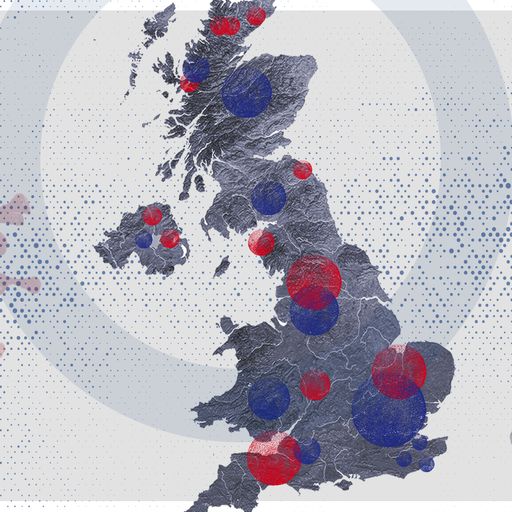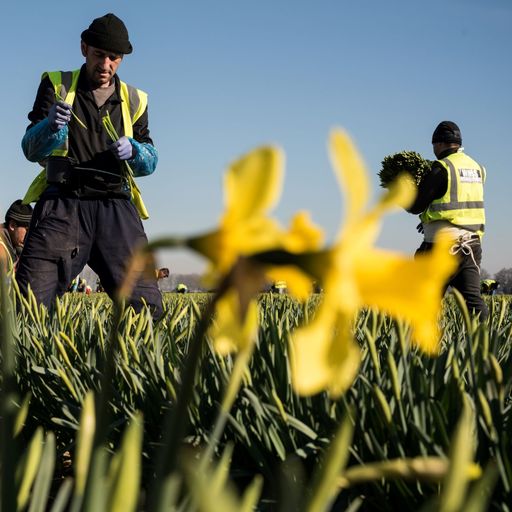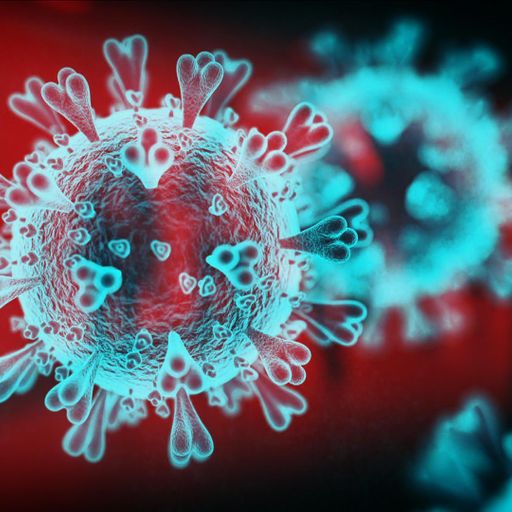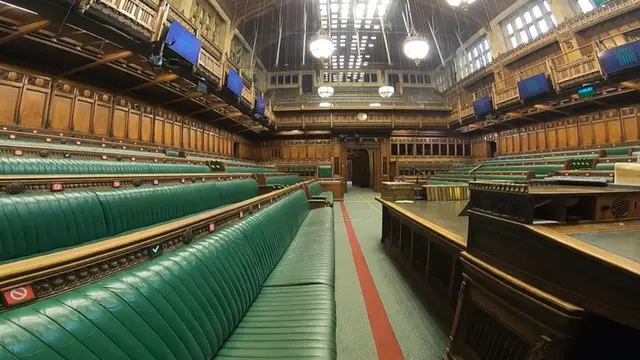Since the COVID-19 crisis escalated, the boisterous shouting of the House of Commons has been replaced by an unusual quiet.
Only 50 MPs can fit in there - at a two-metre distance from each other - and 120 others can join in by videolink.
This is the new "hybrid" system which was unveiled last month. And this week MPs voted remotely for the first time by pressing a button on their laptops.

How many coronavirus cases are there in your area?
An institution not known for its swift adoption of new technology has embraced democracy by Zoom.
Sky News met the small team of people tasked with setting up the system which could hold government to account while observing social distancing.
How will it hold up when the government is already calling for MPs to return to Westminster as soon as next month?
Peter Bone, the outspoken Tory MP for Wellingborough, is one of those agitating for a return.
"The technology is fine for casework constituency work. But scrutinising government is just hopeless," he said.
"You can't intervene, you can't question a minister during a debate, the government is getting a free ride when it comes to scrutiny."
**:: Listen to the Daily podcast on **
Apple Podcasts
**, Google Podcasts
, Spotify
, Spreaker
**
Legislation, he said, has "ground to a halt" as the committees that work on draft laws find it difficult to do so remotely.
As have the personal interactions which grease the wheels of politics. After coming to parliament on Wednesday to ask Boris Johnson a question, he left the chamber and saw the prime minister.
"We bumped into each other in the corridor and I was able to talk to him about the issue I wanted to talk to him about.
"That happens all the time in parliament - getting hold of ministers and bending their ear or talking to colleagues and finding out what they're thinking."
But is this all too high risk?
MPs and peers vacated parliament at the end of March as the COVID-19 crisis was escalating with several members already struck down, before it reached the health secretary and the prime minister.
They partially returned on 21 April with strict social distancing in place, in the narrow corridors and dilapidated offices as well as the chamber.
But this week Leader of the House Jacob Rees-Mogg surprised MPs by announcing that the virtual arrangements should end next week, paving the way for MPs to return at the start of June.
"How can we say to our schoolchildren, 'you're safe going back', but that we're not…is that the right message to give to our constituents?" he said. "We are the leaders of our nation and we have a responsibility and that responsibility falls on us to come back but we can observe social distancing."

UK headed for 'significant recession' after GDP drop
Opposition MPs were horrified, saying hundreds of MPs travelling to and from their constituencies to Westminster every week posed a grave health risk.
The youngest MP Nadia Whittome, 23, was only elected for Labour in December and is working from her family home in Nottingham.
"I live with my mum and my desk is actually on top of the electric meter, I just open the door and slide my legs under", she said.
Dialling into a committee meeting, the former carer said: "I'm very glad this virtual parliament has been introduced - I was one of the MPs calling for it.
"It's clearly not safe for parliament to return yet but it's right that we are able to scrutinise the government properly, particularly during a pandemic as they are making very high stakes decisions.
"The institution of parliament has always been very 'computer says no', but there is nothing to fear from digital democracy."

Infection numbers in real time
John Angeli, director of parliamentary broadcasting, showed TV cameras behind the scenes of a deserted parliament yesterday.
His small team in the broadcast "control room" set up the new system to help MPs participate from home - and be seen on television.
"It took three or four days to build the design, then we only had a couple of days to rehearse before we were live for Prime Minister's Questions," he said.
"That was a tough day. It looked smooth but there was a lot of paddling beneath the water.
"Everyone had an intense sense we were in the middle of a national crisis and members needed to hold ministers to account, and had to be seen to do so."
The government decides whether to continue with the virtual system - with the prospect of around 400 MPs returning in two weeks.
Most of their staff are expected to remain at home. Some MPs are shielding and others including in the devolved nations have refused to go back.
Tensions are running high, and Speaker Lindsay Hoyle has made clear he will suspend proceedings if there is overcrowding.
As workplaces around the country slowly and cautiously open up, parliament will need to decide where it stands on the risk scale.
 简体中文
简体中文

